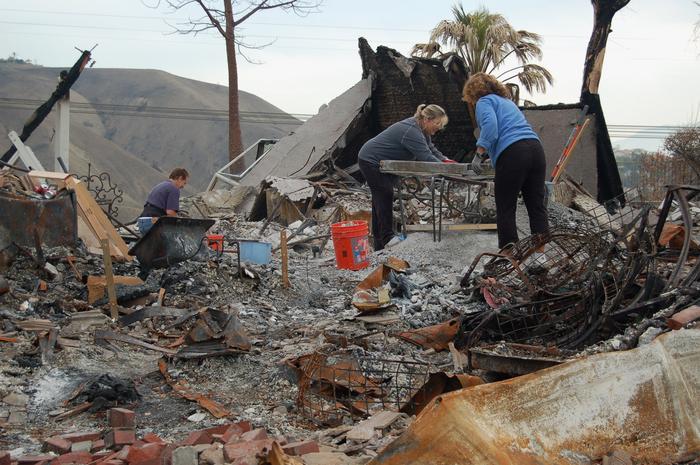In a year marked by wildfire, catastrophic flooding, and deadly weather events, an international team of scientists has updated its influential 2019 World Scientists Warning of a Climate Emergency report, which has been cosigned by over 15,000 scientists representing 163 countries. According to the team, “life on planet Earth is under siege” and “we are now in uncharted territory.”

Credit: Credit: FEMA/Michael Mancino, Public Domain.
In a year marked by wildfire, catastrophic flooding, and deadly weather events, an international team of scientists has updated its influential 2019 World Scientists Warning of a Climate Emergency report, which has been cosigned by over 15,000 scientists representing 163 countries. According to the team, “life on planet Earth is under siege” and “we are now in uncharted territory.”
Writing in the journal BioScience, William Ripple, a distinguished professor at Oregon State University College of Forestry, and former OSU postdoctoral researcher Christopher Wolf, alongside 10 coauthors, update the status of planetary vital signs and urge immediate action to curb the effects of climate change. Of the 35 vital signs tracked by the authors, 20 are now at record extremes, they say, an alarming development tragically reflected in human suffering. Of particular concern, say the authors, are fossil fuel subsidies that have doubled to over $1 trillion between 2021 and 2021, Canadian wildfires that have pumped over 1 gigaton of carbon into the atmosphere this year (Canada’s 2021 total greenhouse gas emissions were 0.67 gigaton), and 38 days with recorded global temperatures exceeding preindustrial levels by more than 1.5 degrees Celsius. There is even reason to believe, the authors suggest, that an average global surface temperature recorded in July may have been the highest seen on Earth in 100,000 years. The authors also raise concerns about climate-related risks to food security, noting that roughly 735 million people faced chronic hunger in 2022—an increase of approximately 122 million since 2019.
A failure to act quickly, say Ripple, Wolf, and colleagues, could result in upwards of half of the world’s population being “confined beyond the livable region” of Earth, subject to deadly heat, limited food availability, and elevated mortality. The authors urge policies to prevent further “ecological overshoot,” the disastrous consequence of humanity’s overuse of resources. Specifically, they recommend an economic transition to prioritize meeting the basic needs of all people rather than supporting extreme consumption by the wealthy. The authors also emphasize the need for gender justice, including greater support for women’s and girl’s education and rights, which can improve standards of living and reduce fertility rates. In addition, they call for the phasing out of fossil fuel subsidies, a transition to plant-based diets, greater forest protection, and international treaties aimed at fossil fuel nonproliferation and the elimination of coal burning. The authors also note that these efforts must be undertaken with a clear focus on equity and social justice, because climate hazards “disproportionately affect the world’s most impoverished individuals, who, ironically, have had the least role in causing this issue.”
The authors close with an urgent call for global action and attention, stating that “this is our moment to make a profound difference for all life on Earth, and we must embrace it with unwavering courage and determination to create a legacy of change that will stand the test of time.”
__
Co-authors of the paper include Bev Law of the OSU College of Forestry, Jillian Gregg of Terrestrial Ecosystems Research Associates, Johan Rockström of the Potsdam Institute for Climate Impact Research, Thomas Newsome of the University of Sydney, Luiz Marques of Brazil’s State University of Campinas – Unicamp, Timothy Lenton of the University of Exeter, Chi Xu of Nanjing University, Saleemul Huq of Independent University Bangladesh, Leon Simons of the Club of Rome Netherlands, and Sir David Anthony King of the University of Cambridge.
The CO2 Foundation and Roger Worthington provided partial funding for this research
Journal
BioScience
DOI
10.1093/biosci/biad080
Method of Research
Commentary/editorial
Subject of Research
Not applicable
Article Title
The 2023 state of the climate report: Entering uncharted territory
Article Publication Date
24-Oct-2023




